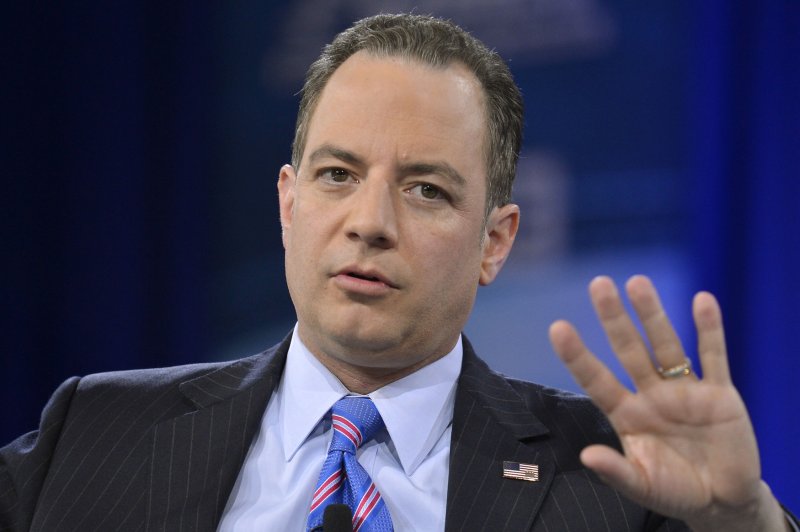Republican National Committee Chairman Reince Priebus speaks at the Conservative Political Action Conference in Maryland last month. On Thursday, the RNC's rules committee voted to make no changes to the rules governing this summer's Republican National Convention, which could be the first brokered convention since 1976. Photo by Mike Theiler/UPI |
License Photo
HOLLYWOOD, Fla., April 21 (UPI) -- The Republican National Committee's rules committee voted Thursday to keep the rules governing the nominating process at the party's convention in Cleveland this year as they were four years ago, with members saying any changes would inevitably be seen as the party favoring one candidate over another.
The obscure panel of Republican Party insiders from across the country has been thrust into the center of a vigorous debate over how the convention should be run, given the distinct possibility that it will be the party's first brokered convention since 1976, when former California Gov. Ronald Reagan challenged Republican President Gerald Ford.
A proposal by Oregon rules committee member Soloman Yue would have changed the way the party selects its nominee, giving more power to the 2,500 or so delegates and making it more difficult for the party establishment to insert a so-called "white knight" candidate into subsequent ballots if no candidate wins on the first ballot.
Yew proposed abandoning the present convention rules, which are modeled on the rules governing daily business on the floor of the House of Representatives. Instead, Yue proposed using Roberts Rules of Order, a set of rules and procedures used to conduct many local government and non-profit organization meetings.
The change, while seemingly arcane, would have had a profound effect on the convention. It permits any of the 2,500 delegates to make an objection to a point of order or a decision and would require an up or down vote on the objection for the convention to proceed. It also requires a majority of voting members to agree to reverse previous decisions.
Under those rules, delegates would first vote on which candidates are eligible to appear on the convention ballot. In order to revise the list and add a name onto subsequent ballots, a majority of delegates would have to agree, essentially meaning a candidate seeking to win the nomination from the floor would have to cinch the nomination before ever appearing before the full convention for a vote.
Yew argued the change would be the best way to inject transparency into the convention and ensure the eventual nominee was truly the choice of delegates and not just party leaders. The present rules leave much of the power to decide procedural matters to the convention chairman, House Speaker Paul Ryan.
The proposed change was tabled via voice vote at the rules committee meeting in Florida this week, despite a half-dozen or so delegates rising in objection.
The committee also took no action on Rule 8 in the RNC manual, which requires the nominee to have won a majority of delegates in at least eight states in order to qualify for the nomination. The rule, which the rules committee may eventually have to revisit if the convention deadlocks between Donald Trump and Sen. Ted Cruz, would prohibit all but those two from winning the nomination.















